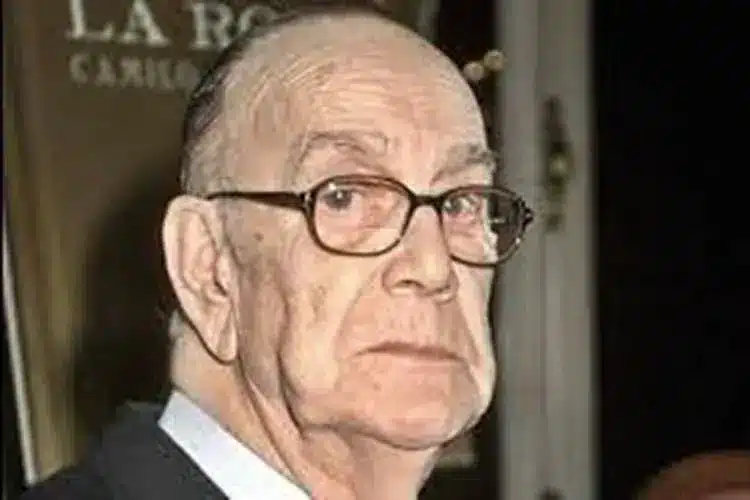Camilo José Cela: Spanish Literary Giant and Nobel Laureate in Literature

Camilo Jose Cela (11 May 1916 – 17 January 2002) was a Spanish novelist, poet, story writer, and essayist associated with the Generation of the ’36 movement. He won the 1889 Noble Prize in Literature.
Life and Career
He was born on 11 May 1916, in Galicia, Spain. He got into the Medicine Faculty of the Complutense University of Madrid in 1934, but he dropped out and switched to the Arts department. At university, he shared his first poems and works with the Spanish poet Pedro Salinas. His writing career was greatly influenced by Pedro Salinas.
After the Spanish Civil War broke out in 1936, he joined and served in Francisco Franco’s army. He was wounded in the war and had to be hospitalized in Logroño. In 1939, the Civil War ended. In 1945, he published a collection of poems called ‘Treading in the doubtful light of day’.
Camilo José Cela studied law after the war. He began writing ‘La Familia de Pascual Duarte’ during this phase, a story set in rural Extremadura. The novel has a unique narration style called ‘tremendismo’; a style that emphasizes violence. In 1942, it was published and became a huge hit.
As a result of his novel’s publication, Camilo José Cela had to deal with issues from the Church, as his novel was deemed rough, so his second book was censored. Despite censorship issues, he published a Buenos Aires edition of his masterpiece ‘La Colmena’ in 1951. It describes the brutality of life in Spain in the 1930s. Camilo José Cela was appointed to the Royal Spanish Academy in 1957. His later works include Christ Versus Arizona (1988) and the Galician trilogy, Mazurka for Two Dead People (1983), St. Andrew’s Cross (1994), and Boxwood (1999). His novel ‘La Colmena’ was adapted into a 1982 feature film directed by Mario Camus. He died on 17 January 2002 in Madrid, Spain.
Award and Legacy
He won the Nobel Prize in Literature in 1989 for his “rich and intense prose, which forms a compelling vision of man’s vulnerability with restrained compassion.” In 1994, he received the Planeta de Novela. He won the Miguel de Cervantes Prize in 1995.
Observer Voice is the one stop site for National, International news, Sports, Editor’s Choice, Art/culture contents, Quotes and much more. We also cover historical contents. Historical contents includes World History, Indian History, and what happened today. The website also covers Entertainment across the India and World.

